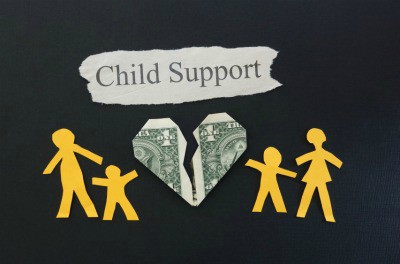 You’ve succeeded in getting the court to enter a child support order for your child. It has been a few months and the obligated parent is no longer paying or is not paying the full amount. The child support arrears are growing with every passing month. The Virginia Division of Child Support Enforcement (DCSE) may be able to get the money flowing again. Below are some tools at their disposal, which you may put to work on behalf of you and your child.
You’ve succeeded in getting the court to enter a child support order for your child. It has been a few months and the obligated parent is no longer paying or is not paying the full amount. The child support arrears are growing with every passing month. The Virginia Division of Child Support Enforcement (DCSE) may be able to get the money flowing again. Below are some tools at their disposal, which you may put to work on behalf of you and your child.
Child Support Enforcement Tools
The primary way to enforce a child support order is through wage withholdings. But if non-custodial parents don’t receive a regular paycheck, are self-employed or work for commissions, the DCSE has other enforcement tools at their disposal. Those tools include placing liens on real or personal property, seizing income or financial assets, intercepting state and federal income tax refunds, and suspending Virginia driver’s licenses. There are two kinds of DCSE cases: (1) “pass-through” cases in which the agency’s only function is to receive payment and disburse payment to the individual the non-custodial parent is ordered to pay; and (2) full-service cases in which the agency performs all establishment, modification and enforcement services.
Federal Parent Locator Service (FPLS)
This service was developed in cooperation with states, federal agencies, employers and the courts. It is operated by the Federal Office of Child Support Enforcement to assist states in locating case participants for the establishment of paternity, child support obligations, and the modification and enforcement of orders for child support, custody and visitation. This service helps federal and state agencies in several ways, including identifying support cases involving the same parties in different states. Individuals cannot make direct requests to the FPLS, but by working with the DCSE, you may be able to use the FPLS to help locate the other parent in your child support case without applying for full child support services. Your attorney can assist you with initiating the proper process through the DCSE.
FPLS resources include the following:
- The National Directory of New Hires, which maintains employment, unemployment insurance and wage data gathered from State Directories of New Hires;
- The Federal Case Registry, which maintains information on child support case participants and child support orders;
- The Federal Offset Program, which collects past-due child support payments from the tax refunds of individuals who have been ordered to pay child support; and
- The Multistate Financial Institution Data Match program, which allows child support agencies to locate financial assets of individuals who owe child support.
Uniform Interstate Family Support Act (UIFSA)
Interstate child support cases have the potential to be complex and time-consuming. UIFSA is a law that outlines the very specific process by which Virginia handles child support cases that cross state lines, including (a) the establishment of paternity, (b) the establishment of initial child support orders, (c) the modification of child support orders and (d) the collection of child support. Among other things, this law helps determine when Virginia has the authority to enter an order against a non-resident (“personal jurisdiction”), which state has continuing, exclusive jurisdiction to modify or enforce a child support order, and which child support order controls when more than one state has entered a child support order involving the same parties and the same child. The DCSE may be helpful to your interstate child support case by acting as the initiating tribunal when working with the child support agencies of other states. For example, if the non-custodial parent is not a resident of Virginia, the DCSE can initiate and forward proceedings to the other state’s child support agency, so that the other state can issue a child support order without the necessity of the custodial parent retaining counsel in that state.
The experienced family law attorneys at Livesay & Myers, P.C. can guide you through every step of the child support process, whether you are the parent ordered to pay child support or the parent ordered to receive it. Contact us to schedule a consultation today.
